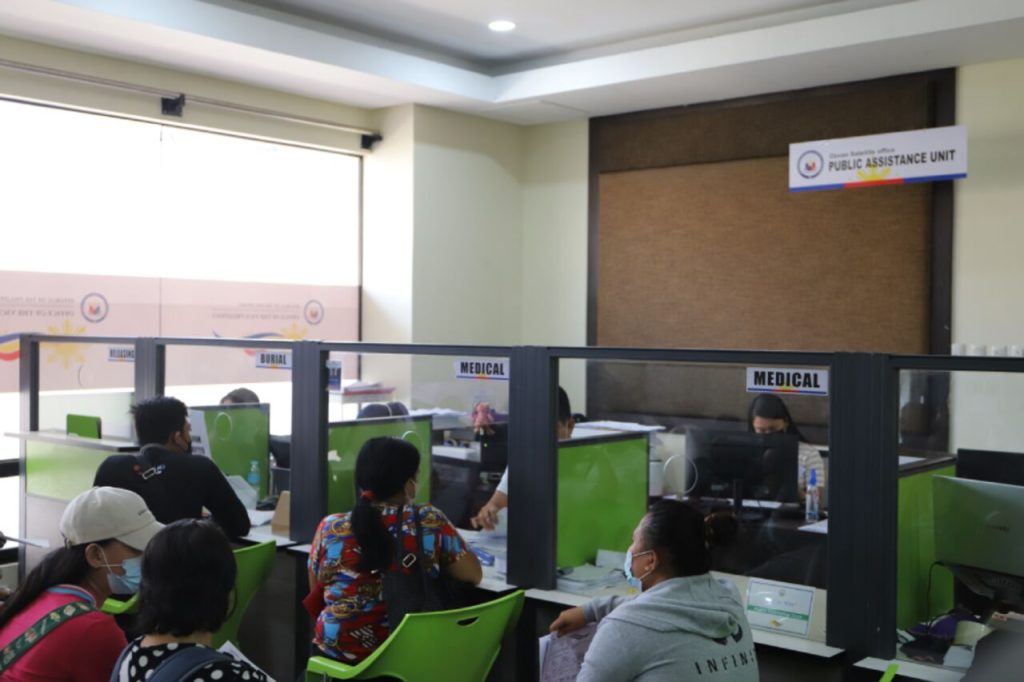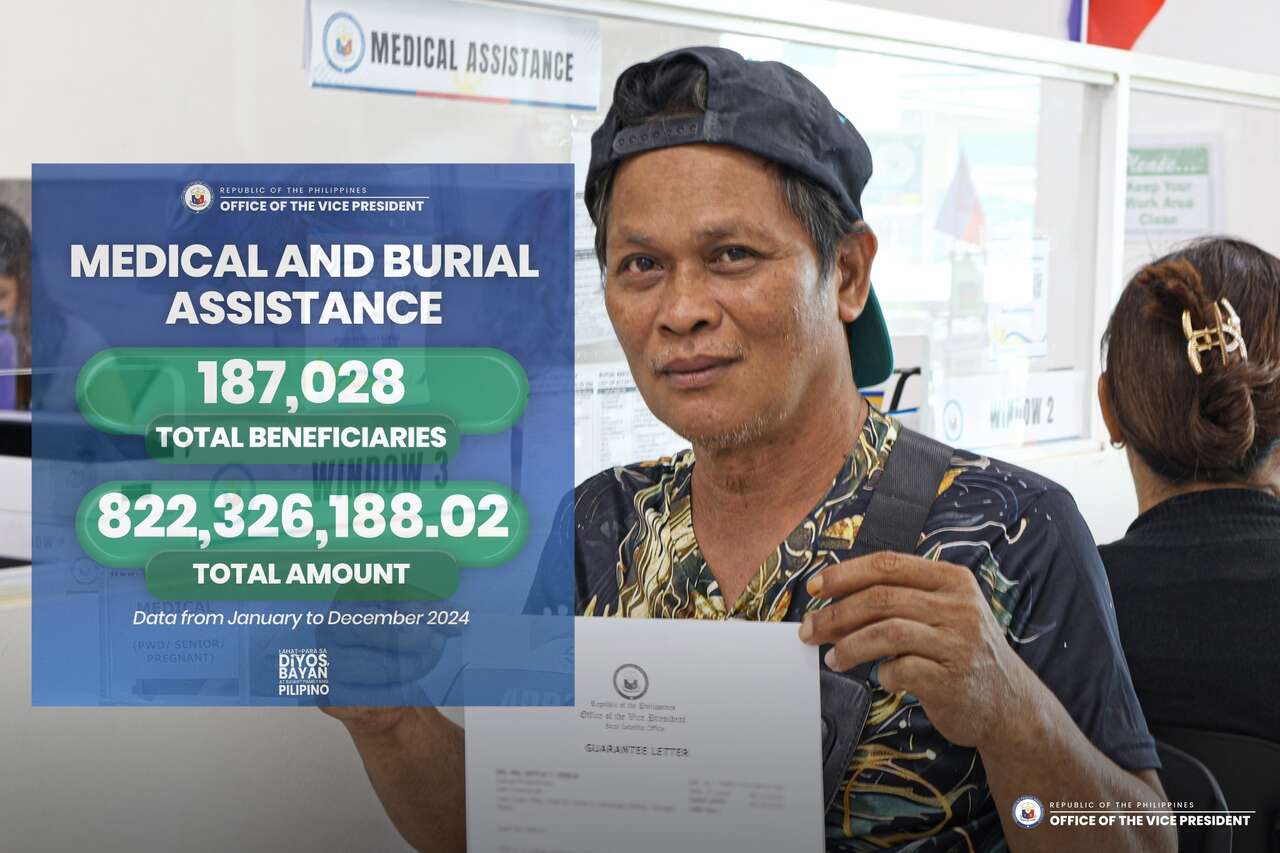The Office of the Vice President (OVP) in the Philippines offers a medical assistance program specifically designed to help marginalized and underprivileged individuals manage their healthcare expenses or pay for their medical expenses. This program supports qualified beneficiaries by issuing Guarantee Letters (GLs) for hospitalization, medication, and other medical needs. It operates in partnership with designated service providers under a Memorandum of Agreement (MOA).
This guide explains the step-by-step process for applying, eligibility requirements, necessary documents, and other critical details. Understanding these aspects will ensure a smooth and efficient application for medical assistance through the OVP.
Features and Benefits of the OVP Medical Assistance Program

The OVP Medical Assistance Program offers comprehensive support to financially disadvantaged individuals in the Philippines, addressing various healthcare needs. Assistance is provided every six months in the form of GLs, which can only be used at partner service providers, provided they submit complete documentation. Some of the features and benefits of this program are as follows:
- Guarantee Letters (GLs): Covers medical expenses at partner service providers.
- Accessible Application Process: Available through the central office and satellite offices nationwide.
- Wide Coverage: Includes hospitalization, medications, diagnostic procedures, and assistive devices.
- Emergency Support: Prioritizes cases like communicable diseases, intensive care, and chronic conditions.
- Regular Eligibility: Allows reapplication every six months for continuous support.
- Mandatory Discounts: Offers additional benefits for Senior Citizens and PWDs with proper documentation.
- Streamlined Partner Network: Works exclusively with service providers under MOA for seamless transactions.
- Exclusions for Resource Management: Limits coverage to exclude elective procedures, negligence-related injuries, and professional fees.
Coverage and Limitations
The program covers various medical needs but has specific exclusions to manage resources effectively. Below are the details:
Covered Expenses
- Hospitalization: Includes emergency and chronic conditions requiring prolonged treatment.
- Medications and Medical Devices: Supports essential prescriptions, implants, and assistive devices.
- Diagnostic Procedures: Assistance provided if government facilities cannot offer required diagnostics.
- Special Cases: Isolation cases, such as COVID-19, and critical care in non-ward settings due to unavailability.
Exclusions
- Elective procedures, dental care, and aesthetic treatments.
- Professional fees and negligence-related injuries (e.g., gunshot wounds from illegal activities).
- Maternity care for uncomplicated pregnancies.
Target Beneficiaries
The program is specifically designed to target financially vulnerable individuals and groups requiring help with medical expenses.
- Indigent individuals: People with limited financial resources as verified by social workers.
- Marginalized sectors: Includes those in rural or underprivileged communities with restricted access to healthcare.
- Persons with chronic illnesses: Individuals suffering from long-term or catastrophic conditions requiring expensive treatment.
- Emergency medical cases: Patients needing urgent care due to life-threatening conditions or communicable diseases.
- Senior citizens and PWDs: Elderly and disabled individuals who qualify for government-mandated medical discounts.
- Hospitalized patients in financial distress: Those admitted to hospitals but unable to settle bills due to financial incapacity.
- Patients requiring assistive devices: Individuals needing wheelchairs, implants, or other medical equipment.
- Individuals affected by unforeseen circumstances: Patients requiring private care due to unavailability of ward services or isolation needs.
Note: Beneficiaries include economically disadvantaged individuals and those dealing with medical emergencies or chronic conditions. However, the program excludes cases such as elective procedures, dental care, aesthetic treatments, and injuries caused by negligence. Only applicants with verified financial need and complete documents will be processed.
Eligibility
Not all of these target groups are entitled to the support of the OVP. In fact, before one can avail of these benefits, they will need to meet the following qualifications based on their circumstances.
- Indigent individuals
- Must present a Certificate of Indigency or
- Social Case Study Report issued by a local or hospital-based social worker.
- Marginalized sectors
- Proof of residence in underprivileged areas
- Documentation of financial incapacity
- Persons with chronic illnesses
- Medical records signed by a physician and dated within three months, including
- clinical abstracts or
- treatment protocols
- Medical records signed by a physician and dated within three months, including
- Emergency medical cases
- Justification for emergency care or hospital-issued certification validating the urgent medical need.
- Senior citizens and PWDs
- Valid Senior Citizen or PWD ID and
- Purchase slip booklet for mandatory discounts.
- Hospitalized patients in financial distress
- Updated Statement of Account (SOA) with PhilHealth and other deductions
- A promissory note for discharged patients.
- Patients requiring assistive devices
- A physician’s certification or
- A personal letter detailing the need for equipment like wheelchairs.
- Individuals affected by unforeseen circumstances
- Supporting documents explaining the lack of ward availability or isolation necessity like:
- Hospital certification or
- Social Case Study Report
- Supporting documents explaining the lack of ward availability or isolation necessity like:
Documentary Requirements
To prove that they are, indeed, who and what they claim to be, applicants are required to submit specific documents. They are also encouraged to get these things prepared prior to application:
General Requirements
- Medical Application Form: Completed and signed (valid for three months from the date of application).
- Social Case Study Report or Certificate of Indigency: Issued by local or hospital-based social workers, stating financial need (valid for three months).
- Medical Records: Includes medical/clinical abstracts or certificates, signed by the attending physician (valid for three months).
- Valid ID: Both patient and representative (if applicable) must provide government-issued IDs. Examples include PhilHealth ID, Senior Citizen ID, and Barangay ID.
Additional Case-Specific Requirements
- For Chemotherapy/Radiation Therapy: Treatment protocol with cost breakdown signed by a physician.
- For Hospitalization: Statement of Account (SOA), with PhilHealth and other discounts deducted. Discharged patients must also present a promissory note.
- For Medicines/Medical Equipment: Prescription and price quotation from a service provider, alongside an authorization letter if someone else will collect the items.
- For Dialysis: Certification of exhausted PhilHealth benefits.
- For Wheelchair Requests: A personal letter addressed to the Vice President and a physician’s certification or patient photo demonstrating need.
Steps to Apply for Medical Assistance
For the actual application procedures, here are the steps to follow:
Step 1. Schedule an Appointment
For the OVP Central Office, applicants must register through the Digital Appointment System (accessible via this link: https://tinyurl.com/OVPMedandBurial). Registration opens every Monday at 8:00 AM and closes once slots are filled. Walk-in applications are not accommodated.
Step 2. Gather Required Documents
Applicants must prepare the following documents for validation during their interview:
Step 3. Submit Documents
Applicants must bring the original and photocopies of required documents including the duly accomplished application form (available at https://drive.google.com/file/d/1WAZQ9-QDrSKsHIrH97nk5pRI0rrOxz_U/view?usp=share_link) to their scheduled interview. Submission hours at the OVP Central Office are from 8:00 AM to 2:00 PM.
Step 4. Attend the Interview
On the scheduled day, applicants or their authorized representatives must present themselves for the interview. Processors may ask for additional supporting documents if further validation is necessary.
Where to Apply?
Applications can be submitted at the OVP Central Office in Mandaluyong City or through designated satellite offices nationwide. The central office uses a Digital Appointment System, requiring clients to pre-schedule their application interview.
Additional Notes for Applicants
To make the process smoother, make sure to keep these tips in mind:
- Mandatory Discounts: Patients must present Senior Citizen or PWD IDs, along with their purchase slip booklet, to service providers for applicable discounts.
- Private Room Limitations: Patients in private rooms may qualify only if no alternative wards are available or the condition necessitates specific care, as verified by hospital authorities.
- Emergency Cases: Immediate needs, such as intensive care or communicable disease isolation, may be prioritized.
For clarifications, applicants can contact the Public Assistance Division at (02) 8370-1716 or (02) 8370-1719, or email pad@ovp.gov.ph.
Frequently Asked Questions (FAQs)
For your reference, here are some of the most common questions and answers regarding the OVP Medical Assistance Program:
1. How often can I apply for assistance?
Eligible individuals can reapply every six months, provided they meet the requirements.
2. What if I don’t have all the documents?
Incomplete applications will not be processed. Ensure all documents are valid and updated before submission.
3. Are professional fees covered?
No, the program excludes payments for professional services.
4. Can I submit applications online?
No, applicants must attend in-person interviews at the scheduled date and time.
Video: Application Checklist and Requirements for the OVP Medical Assistance
The OVP medical assistance program is a valuable resource for marginalized individuals needing help with medical expenses. Applicants must follow a structured process in order to avail of this support for the vulnerable sectors in the Philippines. In this video from Zennibit, you can learn about how to apply for medical assistance through the OVP, including eligibility, required documents, and appointment procedures, helping applicants navigate the process efficiently.
